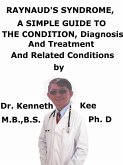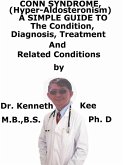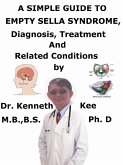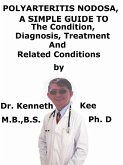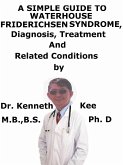Unlike the Fibrodysplasia ossificans progressiva (Stone Man Syndrome) which I wrote about a few months ago, this stiff man syndrome is more an autoimmune disease of the neurological disorder that affects the brain and spinal cord causing the person to be stiff due to muscle spasms.
Fibrodysplasia ossificans progressiva (Stone Man Syndrome) in contrast is a genetic disorder in which muscle and connective tissue such as tendons and ligaments are slowly replaced by bone (ossified), producing bone outside the skeleton (extra-skeletal or heterotopic bone) that restricts movement.
They are completely different disorders.
Stiff person syndrome (SPS) is a rare, progressive medical disorder that involves the nervous system, specifically the brain and spinal cord.
Stiff person syndrome (SPS) is called an autoimmune neurological disorder.
Like other types of neurological disorders, SPS affects the brain and spinal cord (central nervous system).
An autoimmune disorder happens when the immune system incorrectly identifies normal body tissues as harmful and attacks them.
SPS is rare.
It can significantly affect the quality of life without proper treatment
Symptoms may involve extreme muscle stiffness, rigidity and painful spasms in the trunk and limbs, seriously impairing mobility.
Spasms can generate enough force to fracture bone.
People with SPS often have increased sensitivity to noise, sudden movements, and emotional distress, which can activate muscle spasms.
Continual symptoms can cause abnormal posturing of the spine, such as being hunched over.
The precise cause of SPS is not known.
It is possibly genetic.
It is thought to have an autoimmune component and is often linked with diabetes, and other autoimmune diseases such as thyroiditis, vitiligo, and pernicious anemia.
The patient may also be at an increased risk for developing the syndrome if the patient or someone in the family has another type of autoimmune disease.
These are:
1. Type 1 and 2 diabetes
2. Pernicious anemia
3. Rheumatoid arthritis
4. Thyroiditis
5. Vitiligo
For unknown causes, autoimmune diseases fight the healthy tissues in the body.
With SPS, the tissues in the brain and spinal cord are involved.
This causes symptoms based on the tissue that is attacked.
SPS produces antibodies that assail proteins in brain neurons that regulate muscle movements.
These are called glutamic acid decarboxylase antibodies (GAD).
It may be diagnosed after having various tests including blood tests (including a test showing elevated glutamic acid decarboxylase (GAD) antibodies), a lumbar puncture, and electromyography.
The treatment focuses on the control of symptoms and improvement of mobility, and may require benzodiazepines, muscle relaxants, and intravenous immunoglobulin (IVIG).
While some people with SPS may sustain reasonable amounts of activity with treatment, the majority of them become disabled over time.
The symptoms of stiff person syndrome may form when the immune system mistakenly attacks the neurons that produce GAD.
When GAD is not working properly, there is not adequate GABA to help control muscle movement.
The precise part that deficiency of GAD plays in the development of stiff person syndrome is not fully known.
Some patient with stiff person syndrome will have antibodies to amphiphysin, a protein involved in the communication of signals from one neuron to another.
Persons with these antibodies have a higher danger for developing breast, lung, or colon cancer
TABLE OF CONTENT
Introduction
Chapter 1 Stiff Person Syndrome
Chapter 2 Causes
Chapter 3 Sympto...
Dieser Download kann aus rechtlichen Gründen nur mit Rechnungsadresse in A, B, CY, CZ, D, DK, EW, E, FIN, F, GR, H, IRL, I, LT, L, LR, M, NL, PL, P, R, S, SLO, SK ausgeliefert werden.



